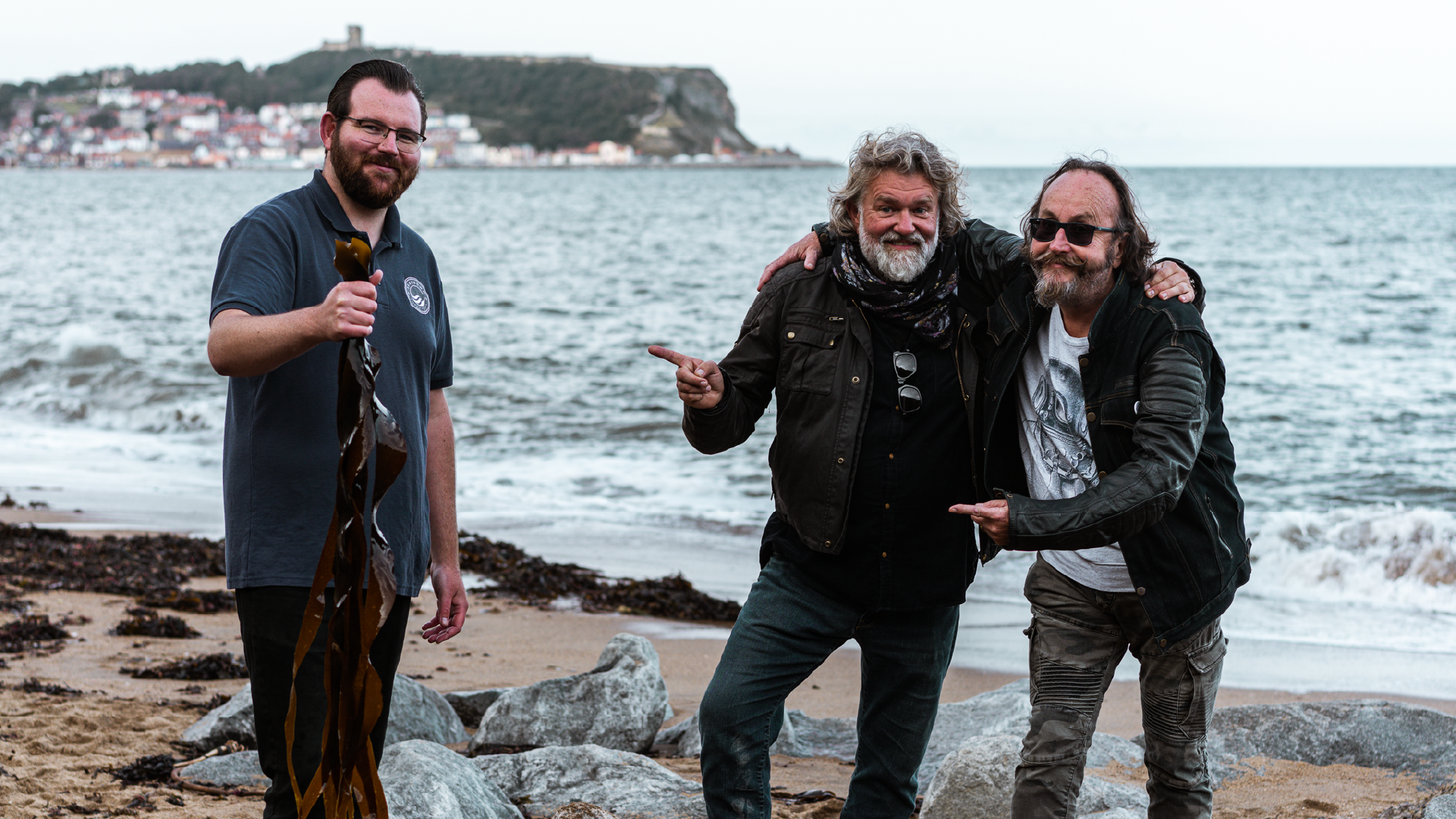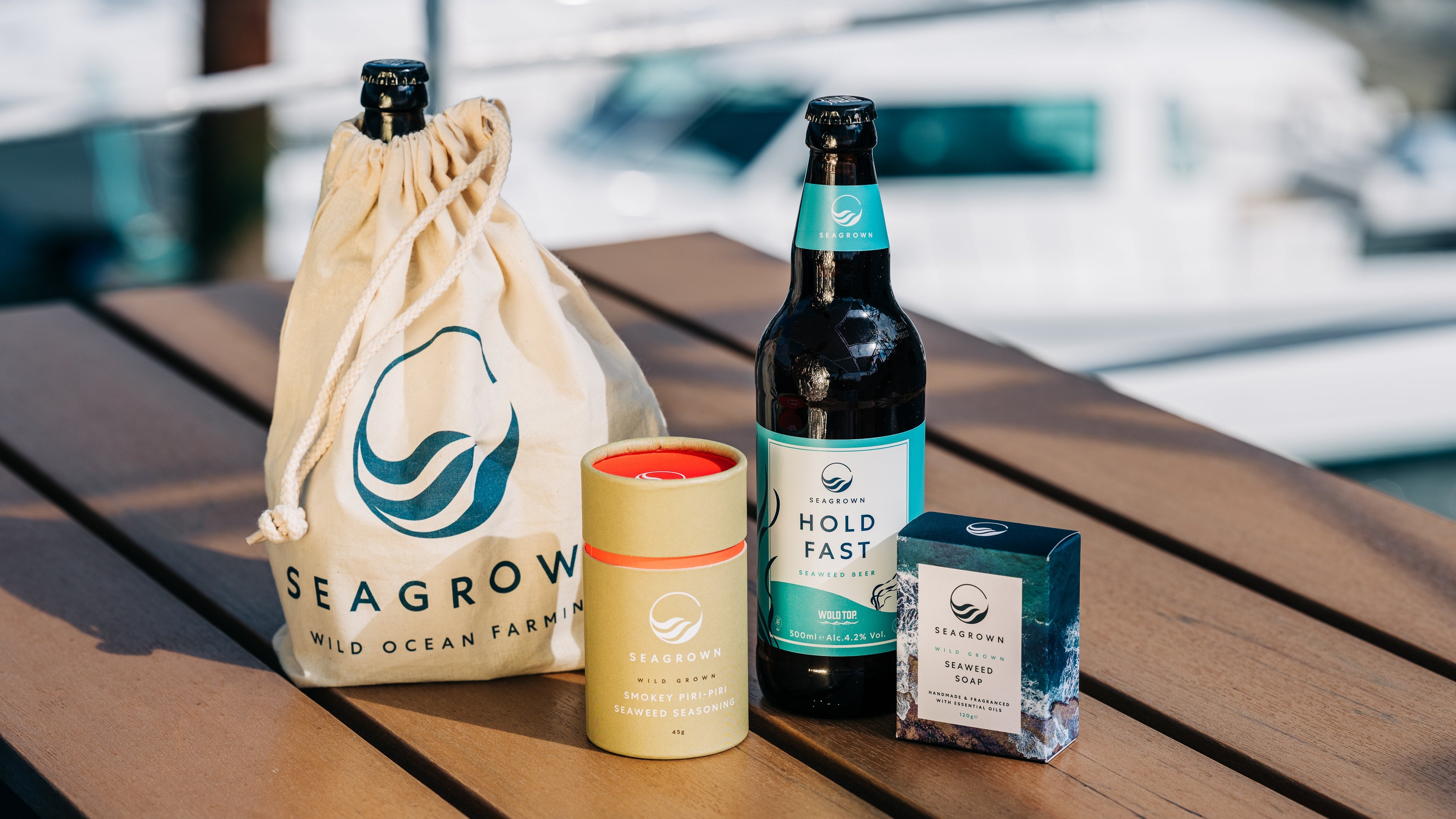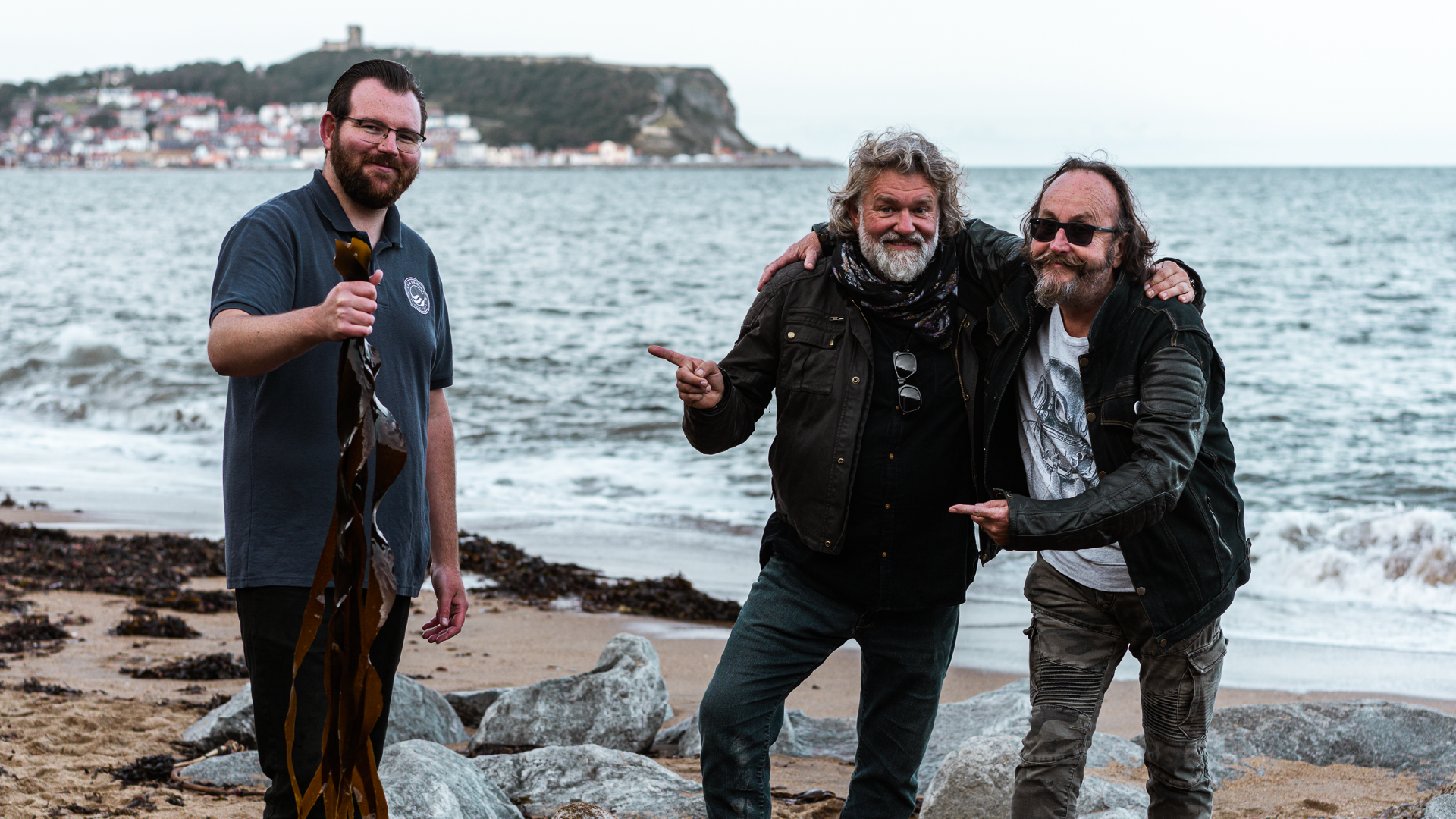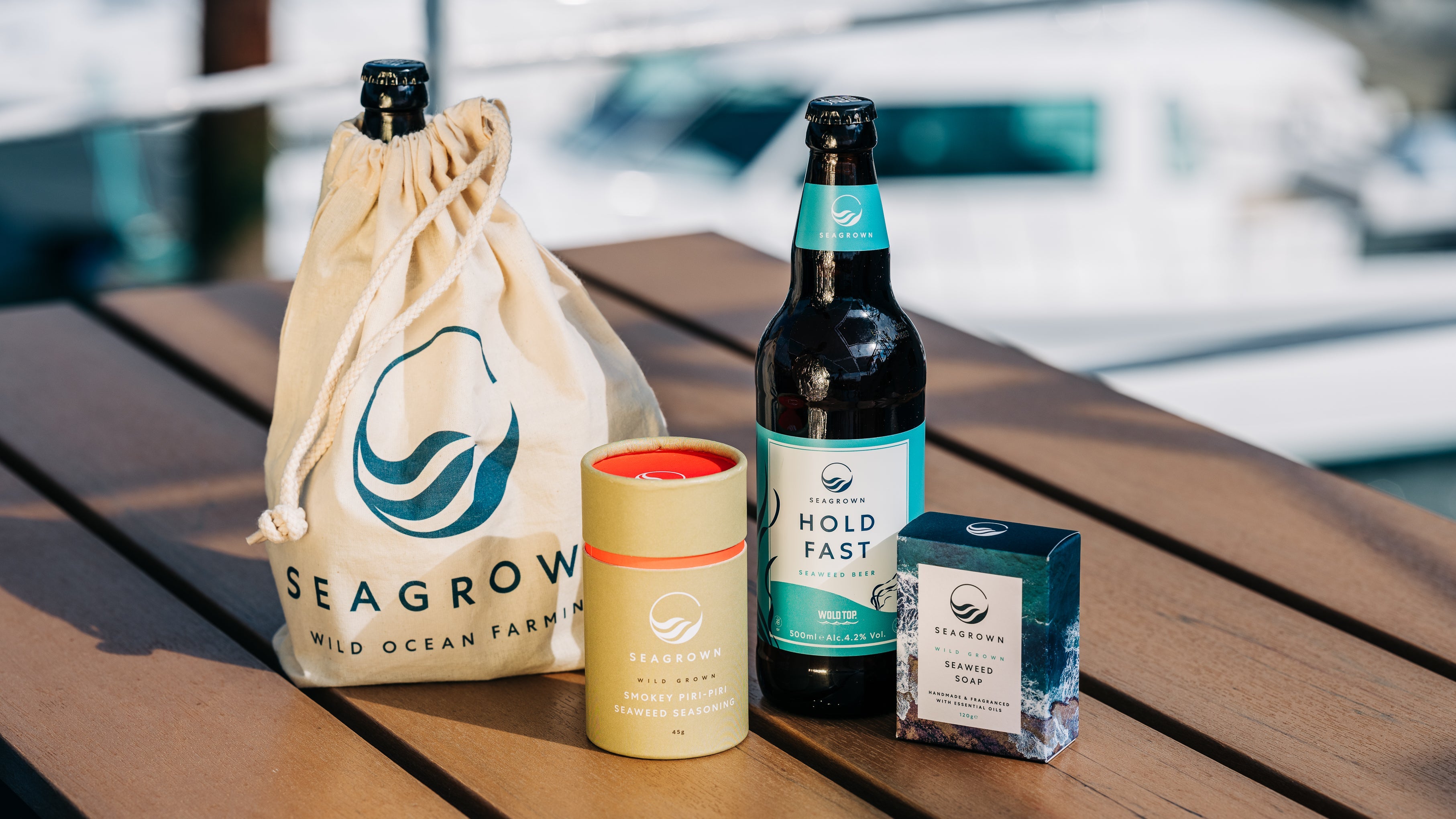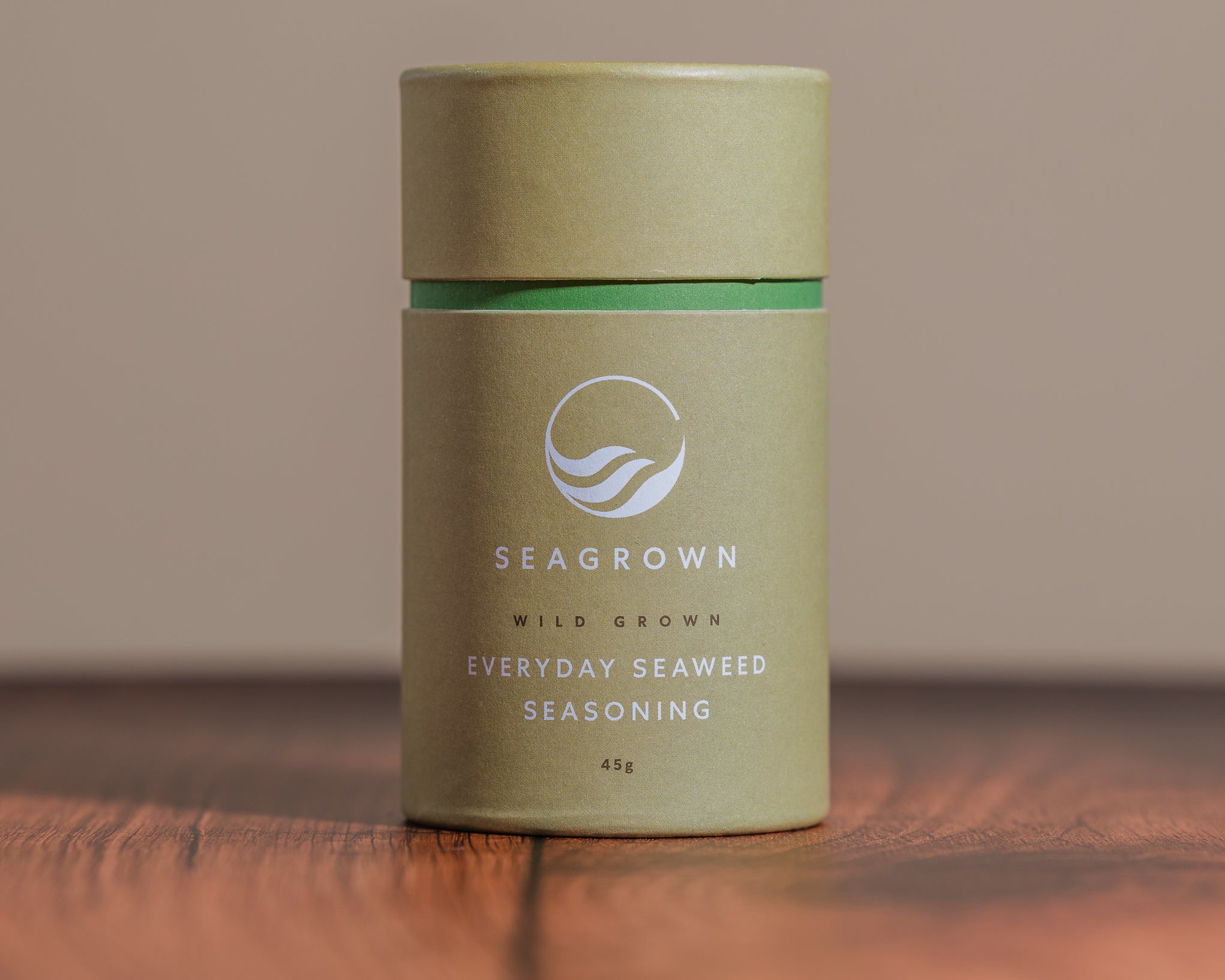It's not every day the North Sea grants you perfect conditions for venturing far offshore, but recently, under glorious spring sunshine and on beautifully calm seas, the SeaGrown team did just that. Aboard our vessel Bright Blue, we had the pleasure of collaborating with Ben and Alister from the University of Hull on a special scientific survey aimed at extending our understanding of the marine environment beyond our usual operational areas.

Skipper Jake at the helm
This trip marked a significant step in our ongoing research efforts. We journeyed 12 miles offshore – approximately five times further out than our regular sampling missions near our cultivation site. Why go the extra distance? We believe it's the first time comprehensive samples and water column data have been collected at this range off the Scarborough coast since the 1990s. Filling this potential long-term data gap is crucial for building a truly holistic picture of our wider coastal ecosystem dynamics.

Deploying the plankton net
Starting from the 12-mile mark, the team worked systematically back towards the shore, pausing at one-mile intervals to deploy a suite of scientific equipment. CTD probes were used to measure conductivity (salinity), temperature, and light levels through the depth profile; Niskin bottles collected water samples for later laboratory analysis; specialised nets gathered phytoplankton specimens (the base of the marine food web); and Secchi disks provided valuable water clarity readings. Together, this detailed dataset helps us understand the intricate physical and biological conditions shaping our local marine environment throughout the year.

Deploying the Secchi disk
Executing such a survey requires teamwork and favourable weather, and we were fortunate to have both on the day. Huge thanks are due to Ben and Alister from the University of Hull for their expertise and collaboration on this important fieldwork. Gathering comprehensive baseline data like this is fundamental to understanding environmental change and ensuring the long-term health and protection of our precious Yorkshire coast waters.

Collaborative spirit: SeaGrown and the University of Hull working together

